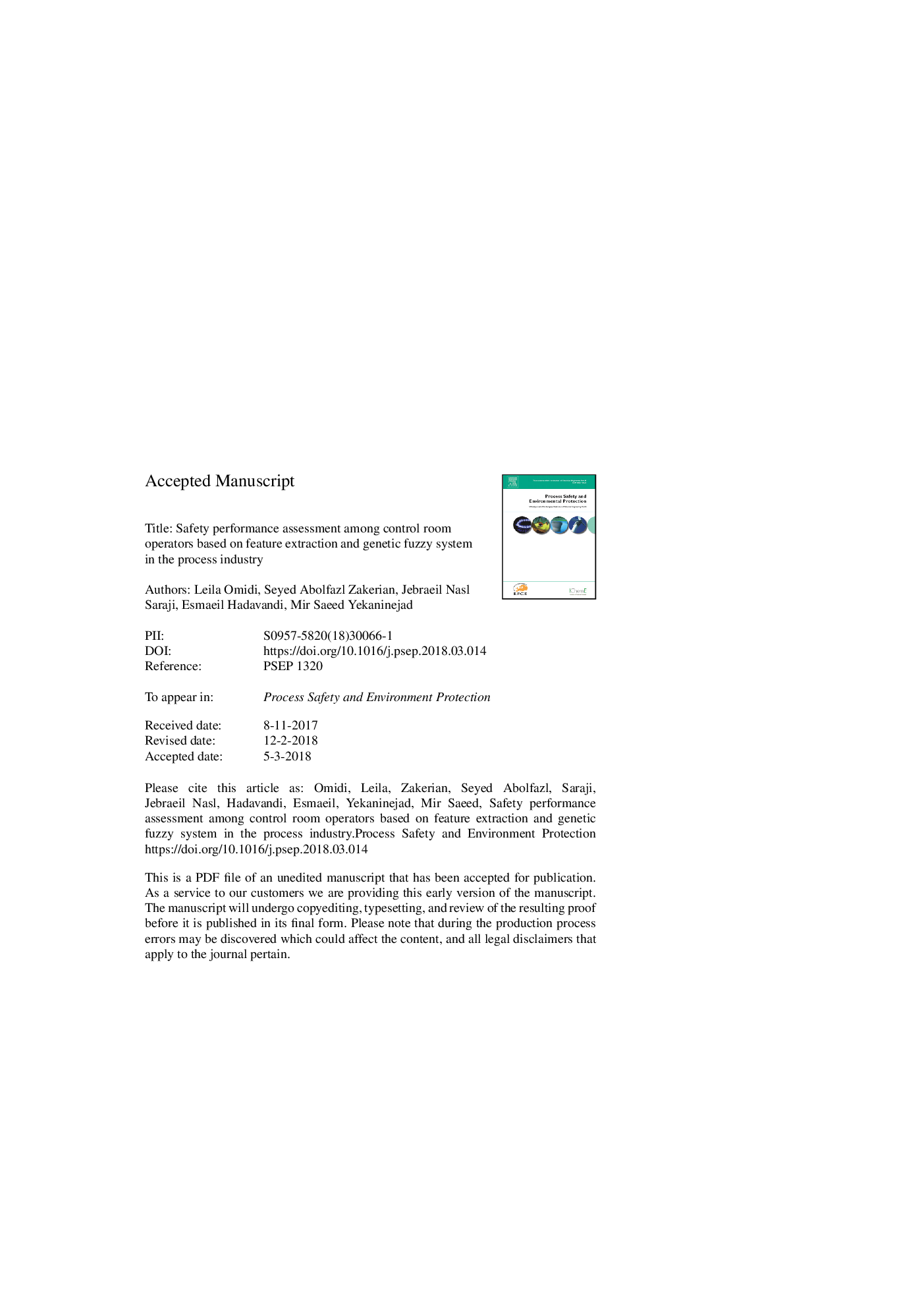| Article ID | Journal | Published Year | Pages | File Type |
|---|---|---|---|---|
| 6974135 | Process Safety and Environmental Protection | 2018 | 28 Pages |
Abstract
Human factors were identified as root causes and contributing factors of major accidents and can affect safety performance. The aim of this study was to model and work on human factors elements affecting safety performance of control room operators in the oil industry in Iran using a hybrid intelligent approach. Safety performance among control room operators regarding human factors issues was considered in the field and a hybrid intelligent model was employed to model the obtained data. The valid questionnaire containing 283 items in 28 dimensions was used to evaluate safety performance. A hybrid intelligent model in three stages was used to estimate safety performance among control room operators. In the first stage, principal components analysis (PCA) was used to extract 28 main dimensions from related items in the questionnaire. In the second stage, correlation-based feature selection (CFS) was applied to identify the most important dimensions (features) affecting safety performance. In the third stage, genetic fuzzy system was employed for modeling safety performance by selected dimensions as input variables. The feature selection method showed that human-computer interface, manual materials handling, safety culture, safe work practices and permit-to-work systems, quantitative risk analysis, competence management, and incident investigation were the subsets with the highest merit values. The results of genetic fuzzy system revealed that, among features with the highest merit values, safe work practices and permit-to-work systems, human-computer interface, and staff competence had major effects on safety performance of control room operators.
Related Topics
Physical Sciences and Engineering
Chemical Engineering
Chemical Health and Safety
Authors
Leila Omidi, Seyed Abolfazl Zakerian, Jebraeil Nasl Saraji, Esmaeil Hadavandi, Mir Saeed Yekaninejad,
